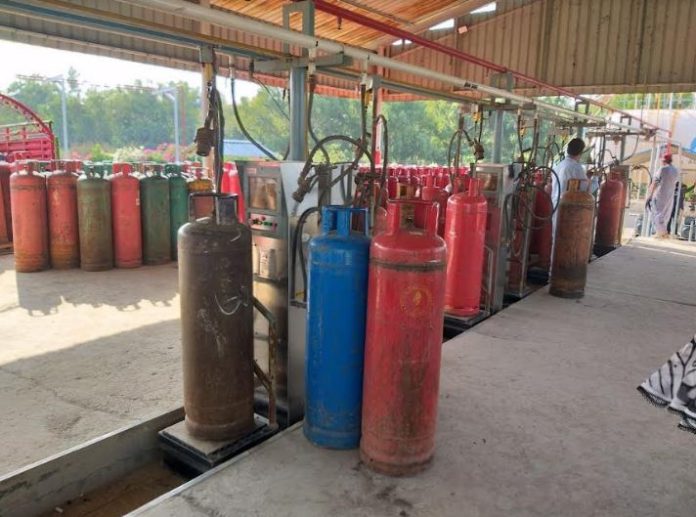ISLAMABAD, JUN 20 /DNA/ – In a proactive move to ensure compliance with safety standards and regulations in the Liquefied Petroleum Gas (LPG) industry, the Oil and Gas Regulatory Authority (OGRA) Enforcement Department, under the instructions of Chairman Masroor Khan, conducted inspections on a number of LPG plants in collaboration with the local authority. During the inspections, a concerning discovery was made at one particular LPG plant, which was found to be in violation of OGRA guidelines and compromising safety measures.
The inspection revealed that the LPG plant, whose licensee is responsible for adhering to OGRA’s stringent guidelines, was engaged in the filling of gas in sub-standard cylinders, blatantly disregarding safety protocols that are in place to protect the public and ensure the safe handling of LPG. Furthermore, it was discovered that cylinders belonging to other reputable companies, including PSO, were being illegally filled at this plant, posing a serious risk to consumers.
Immediately upon uncovering these violations, the plant in question was promptly sealed by OGRA to prevent any further non-compliant activities and to protect the welfare of the public. OGRA has initiated legal proceedings against the licensee of the plant, ensuring that the responsible party will be held accountable for their actions.
Imran Ghaznavi, the spokesman for OGRA, emphasized the importance of maintaining the highest standards of safety and compliance within the LPG industry. He stated, “OGRA remains committed to safeguarding the interests of consumers and ensuring their well-being. We will not tolerate any compromise on safety standards, and those found violating the regulations will face strict legal consequences.”
OGRA will continue to work closely with local authorities and other stakeholders to conduct thorough inspections across the LPG sector. The Authority aims to identify any further violations and take swift action against those responsible. This proactive approach will not only protect consumers but also serve as a deterrent against non-compliant practices within the industry.

















